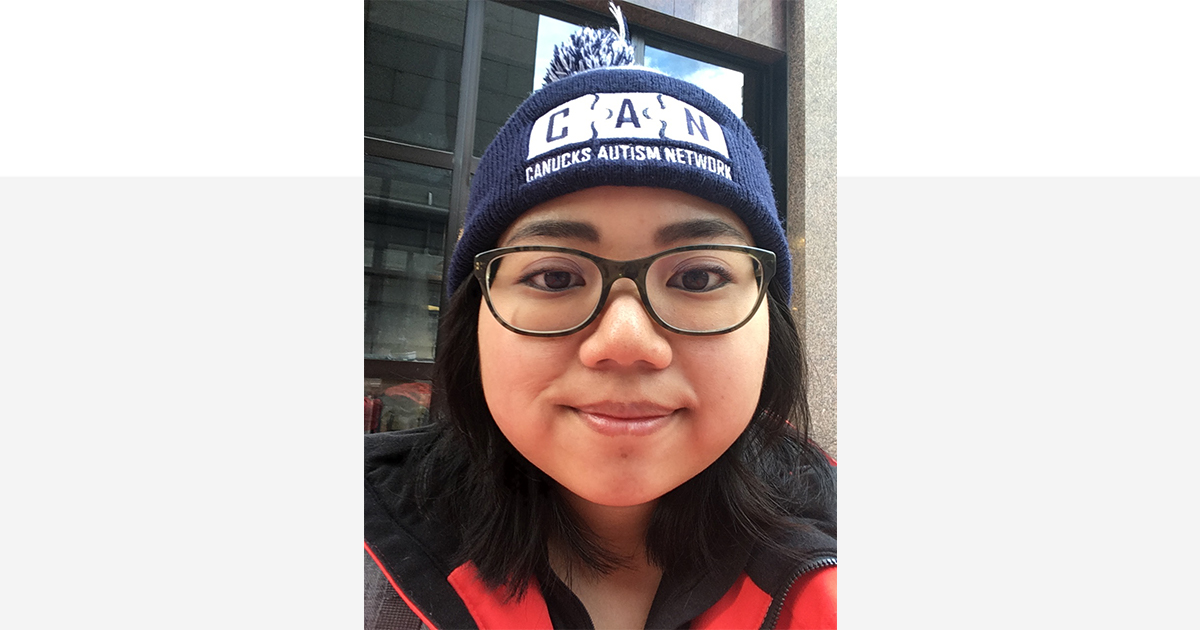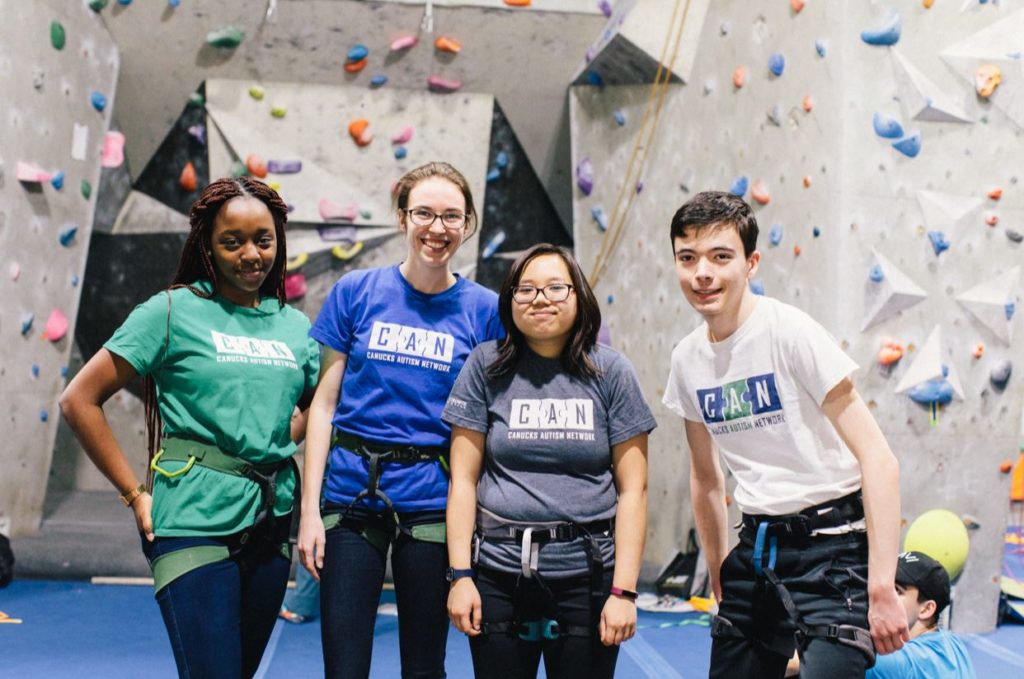My experience coping with change during COVID-19

Mar 27, 2020
My name is Keara Farnan and I wanted to share my experience during the coronavirus pandemic.
I first heard about the coronavirus at the end of 2019, but never thought it would become a serious health crisis. I have become very bored with little to do at home. I’m still managing to stay in contact with my friends and my parents who live in Oliver.
But I feel very disengaged and isolated from society.
I go for walks after breakfast to get groceries and I notice people having to wait in line in to enter. When I walk through the grocery store, I notice most of the stock is missing. And there are signs indicating there is a limit to how many cans of soup customers are allowed to purchase.

Read Keara’s first guest blog with CAN, My life with autism.
I look around me and I see multiple people wearing face masks and gloves and trying to distance themselves from each other. I feel a sense of urgency; I’m not sure if I will be able to get the food I need to survive the next few weeks of this pandemic. The suspense makes me even more nervous.
As I approach the checkout, I notice large pieces of pink tape on the ground and one of the staff tells me to keep my distance. But, I’m not sure what they mean exactly because they didn’t tell me how many metres I need to keep from another customer. I feel panicked as I question if going to the grocery store was even a good idea to begin with.
I do not cope well with sudden changes and I become very grumpy if I’m on my own for long periods of time. My parents have always encouraged me to be more social and interact with my peers. Although, now is certainly not the time to be socially gathering with other people.
I’m stuck between wanting to be social and wanting to remain in self-isolation.
My work is closed, so I won’t be leaving home, except maybe to go to the grocery store or grab a coffee at a café nearby. I feel trapped inside the walls of my apartment as I stare out the window across and look at the other apartment building. It’s like the walls are closing in on me and I don’t like that feeling at all.
I wonder if my neighbours are experiencing the same kind of stress I am, and if other people would understand if I were to explain how I feel about the COVID-19 pandemic. No one really explained to me how serious the coronavirus is. I had to do my own research. And watching the news on TV or reading online articles about COVID-19 is rather disturbing.
I don’t want to think about the coronavirus pandemic anymore. I don’t want to have to stay inside my apartment for what feels like a century.
Living independently on the North Shore, I have had to adapt to manage certain tasks alone, like grocery shopping, budgeting, and doing laundry. I usually go to the gym and work out when I am bored. But unfortunately I do not have that option at the moment.
I’ve been going for walks around the track at Fen Burdett Stadium, which is very close to Carson Graham Secondary.
Physical activity is important to me because it helps me de-stress and also stay in shape.
When I am at home, I like to watch TV, write, bake, and hang out with my cat Maggie. Pets are a great companion for individuals on the spectrum because they provide support and are always there for you when you need a friend.
As a young woman on the autism spectrum, I’m struggling to understand the importance of self-isolation and the effects that the coronavirus may have on those with a disability.
I highly encourage autistic individuals to research COVID-19 online or with their parents to find out more information.
From CAN: ACT-Autism Community Training has a great list of resources for youth & adults with autism to increase their understanding of COVID-19. View here.
Another thing that has really helped me stay calm is watching Netflix and cooking. While it can be hard, you should limit your in-person interactions.
If a friend asks to meet with you in person, you can suggest connecting over the phone or meeting through an online platform instead.
As the rate of coronavirus cases in BC increases, I am becoming even more concerned about the potential of a full lockdown, and the impact it may have on my involvement in Canucks Autism Network (CAN) programs.

Keara in our rock climbing program last year. Read her program testimonial Climbing new heights!
I first joined CAN in 2011 and it has always been a safe place for me to go to where I feel like I belong and fit in. I am very fortunate to be involved with CAN and look forward to future events and programs once the coronavirus passes.
They provide, not only myself, but thousands of other individuals with autism the opportunity to participate in safe, fun, and enjoyable programs — free of judgement or criticism.
I have been staying up-to-date on news from CAN by regularly checking my inbox and their social media platforms, (i.e. Facebook, Instagram, and Twitter), or by reading the monthly CAN newsletter.
I am keeping my fingers crossed that the spread of COVID-19 decreases and CAN programs and events are able to resume without further disruption or health precautions.
-Keara Farnan
How CAN is here to help.
We are closely aware of the need for our youth and adult participants, like Keara, to stay connected while respecting the obligations of social distancing.
Our program team is busily working on new ways for our youth and adult participants to stay in touch with CAN and each other!
Stay tuned in the coming weeks as we announce new initiatives, like virtual meetings, video activities to follow along with at home, a youth and adult newsletter and more. We are excited to stay connected!
Questions? Email CAN’s Navigator of Youth and Adult Services Sarah Armstrong at sarah.armstrong@canucksautism.ca.
Additional resources
Stay up-to-date on CAN program and event announcements at canucksautism.ca/health, our member newsletter and social media (Facebook, Instagram, Twitter and LinkedIN).
For COVID-19 updates and recommendations from provincial health authorities, please visit: bccdc.ca.
We would also like to remind everyone to take care of their mental health. If you are in a crisis, please reach out to Crisis Services Canada – 1-833-456-4566. For additional resources, please visit: foundrybc.ca
Finally, ACT-Autism Community Training has a great list of resources for youth & adults with autism to increase their understanding of COVID-19. View here.
Additional reading
Keara Farnan: My life with autism”
Keara Farnan: Climbing new heights with CAN
Nate Keller: What I want you to know about autism
